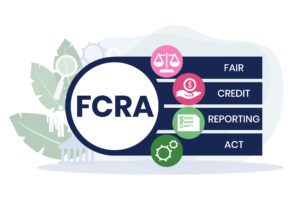
Klasey Wojcik
kwojcik@srascreening.com
Direct: (754) 201-2693
Zulay Moreno
zmoreno@srascreening.com
Direct: (561) 569-8027
You can now connect SRA Screening directly with Greenhouse.
Our new partnership with Greenhouse ATS lets hiring teams launch and track background checks without ever leaving the Greenhouse platform. It’s a seamless way to simplify candidate management, speed up the screening process, and maintain compliance — all in one place.

A well-known company recently faced a $600,000 penalty after a footnote in its background check disclosure was found to violate the Fair Credit Reporting Act’s requirement that such disclosures be “clear, conspicuous, and standalone.” The seemingly minor addition triggered a class action lawsuit alleging a willful FCRA violation, and on appeal, the court concluded that the company had acted with reckless disregard for the law. This case serves as a reminder that even minor compliance oversights can have serious consequences, underscoring the importance of HR teams to ensure every disclosure form is precise, compliant, and regularly reviewed.

A New Mexico woman has been charged with multiple crimes after allegedly falsifying nursing credentials and stealing the identities of licensed nurses across Texas, California, and Kansas. She reportedly worked as a licensed practical nurse, despite lacking the necessary qualifications, at several hospice centers under different aliases. The scheme was uncovered when one employer detected the fake credentials during a routine license review. With the rise in fraudulent documents and identity theft, this case underscores the need for organizations to maintain robust, compliant verification procedures and to continuously review the status of employee licenses to identify issues early and mitigate potential risks.

A recent NDASA article addresses a key compliance question: Does a DOT drug or alcohol violation prevent a driver from operating any commercial motor vehicle (CMV)? Under 49 CFR § 382.501, a driver who commits such a violation is barred from performing safety-sensitive duties, including driving a CMV, until completing the return-to-duty process. However, the regulation does not explicitly prohibit a CDL driver with a violation from operating a smaller vehicle under 26,001 lbs., or other vehicles defined under §390.5, if operated solely intrastate. Still, employers should be cautious, as Clearinghouse rules and enforcement may still apply, and individual states may impose stricter restrictions. To stay compliant and reduce risk, companies should maintain strong verification procedures and regular Clearinghouse reviews to confirm that all drivers are fully cleared before resuming any commercial driving role.

Following two troubling incidents involving Boston city employees, the City Council is moving to strengthen its hiring and background check procedures. The action follows reports that a sex offender was employed by the Parks Department and that another city worker with a lengthy criminal record was arrested after allegedly using a taser on a state trooper and possessing a modified firearm. Council members say these incidents expose serious gaps in pre-employment screening and ongoing monitoring. Proposed reforms include annual background rechecks, audits of recent hires, conditional employment offers pending full verification, and quicker suspension protocols when credible allegations arise.

With federal agencies increasing their focus on employment eligibility compliance, E-Verify audits are on the rise, and employers should be prepared. A USCIS Desk Review evaluates whether organizations are properly following E-Verify and immigration requirements, often triggered by random selection, data inconsistencies, or employee complaints. Employers may be asked to provide Form I-9s, payroll records, and other supporting documents, and in some cases, undergo on-site visits or interviews. Significant errors or violations can lead to expanded investigations, making regular internal audits and thorough documentation essential for compliance.
Stay informed, stay compliant, and streamline your hiring process with SRA Screening.
Key Resource Hub
Your Questions Answered
Editorial team insights